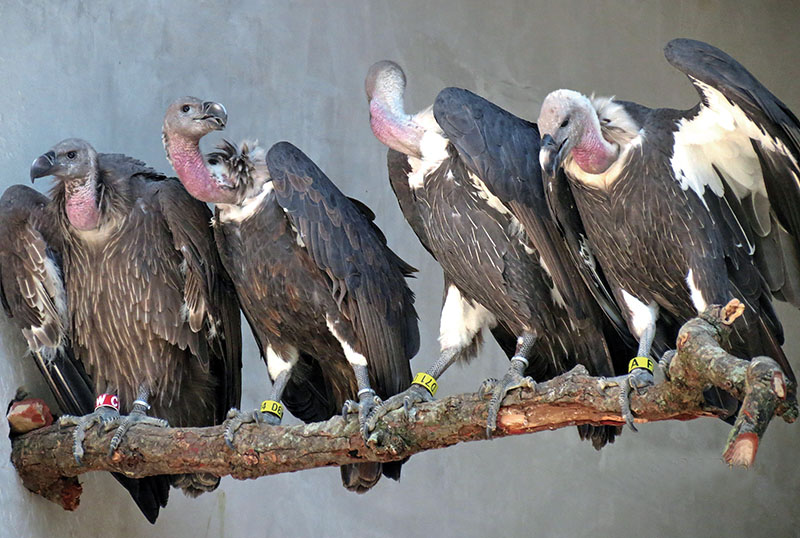Conservation of white-rumped vultures in progress in Nepal
CHITWAN: The conservation of critically endangered white-rumped vultures conducted by the Vulture Conservation Breeding Centre (VCBC) in Kasara, Chitwan National Park (CNP) is in progress.
The VCBC was established in 2007 to conduct captive breeding of critically endangered vulture species that have gone through catastrophic decline across South Asia.
Currently, there are 57 white-rumped vultures in VCBC. Of the total, 25 are males and 24 females while eight others are babies which have not been identified yet. Agriculture and Forestry University Rampur, Chitwan has been conducting DNA tests on the scavenger birds to identify their gender.
Although it was difficult to hatch the eggs in the beginning, six out of 18 eggs were hatched this season at the centre that conducted breeding of vultures brought from different places, according to Supervisor of VCBC, CNP Assistant Conservation Officer Bed Bahadur Khadka.
Last year, 15 vultures had laid eggs, but only nine of them hatched. The scavenger birds had laid eggs for the first time in 2012 but were unable to hatch out. Nevertheless, they hatched for the first time in 2013. In the following year, no eggs were laid, but an egg was hatched successfully in 2015.
The conservation of critically endangered vultures has been expedited to facilitate growth in their population, CNP Assistant Conservation Officer and Information Officer Nurendra Aryal said. The breeding has played a significant role in conservation of the near-extinct birds as many of them have been set free into the nature, Aryal added.
According to Aryal, VCBC had planned to set 19 vultures — six vultures in 2016, five in 2017, four in 2018 and four others in 2019 — free into the nature. However, only six vultures were kept in aviary, constructed near Jatayu Restaurant in Nawalparasi on April 15, 2017 and later set free on November 9, 2017 along with radio collar, a band with radio transmitter to monitor its locomotion.
The scavenger bird plays a major role in maintaining healthy wildlife habitat by feeding on carcasses that could be hazardous to living animals, as they spread disease. White-rumped vulture and small-brown vulture have been listed as critically endangered. Most of them die of renal failure caused by diclofenac-poisoning after feeding on the carcass of animals that have consumed Diclofenac medicines.
At VCBC, they are fed diclofenac-free meat of buffalo. The government has also banned the usage of diclofenac.






